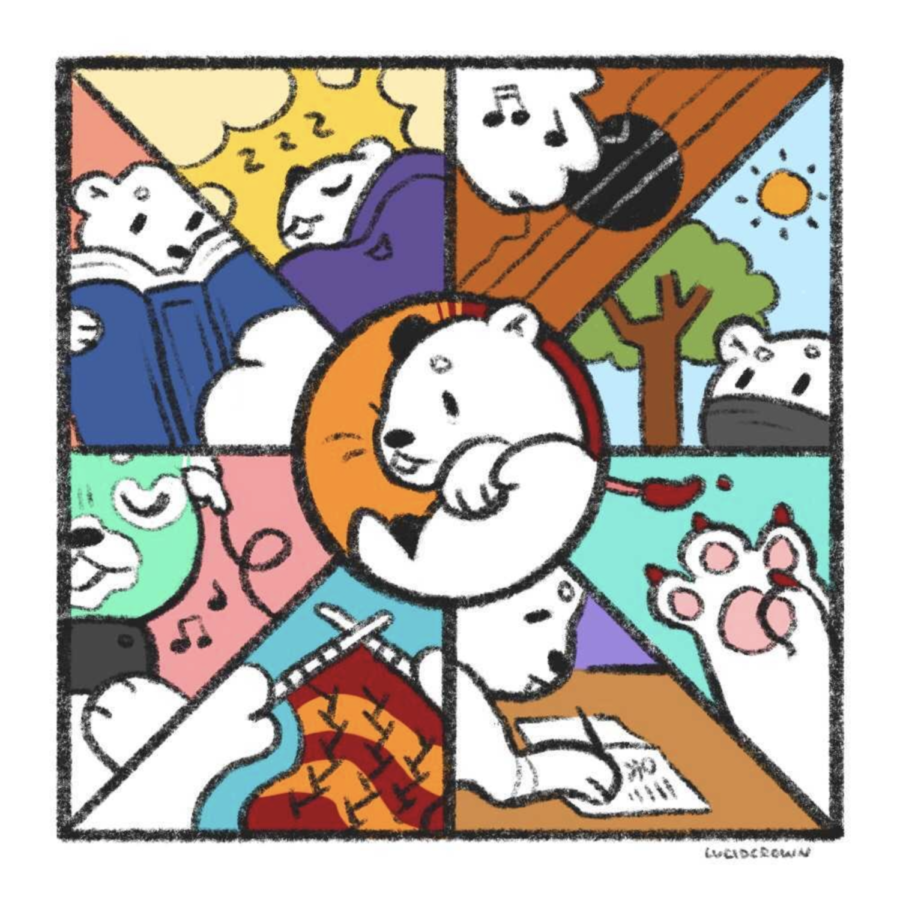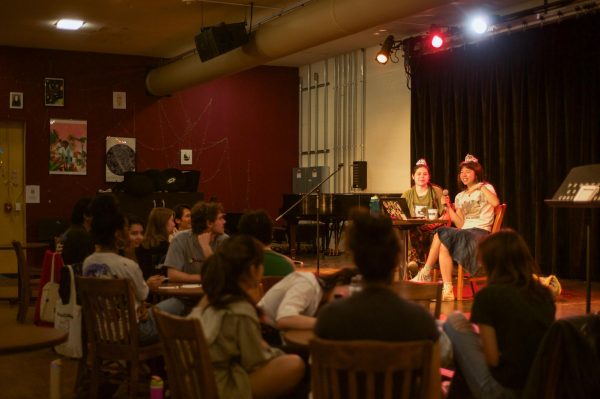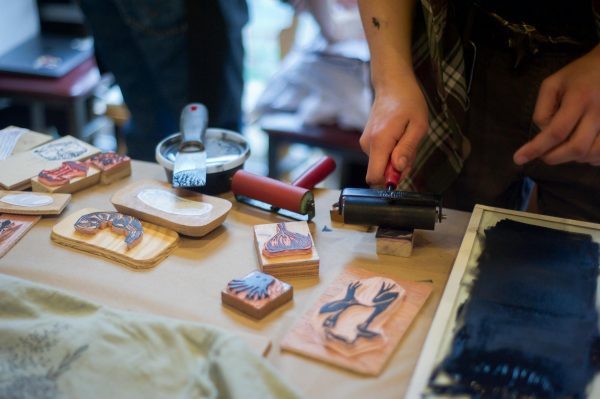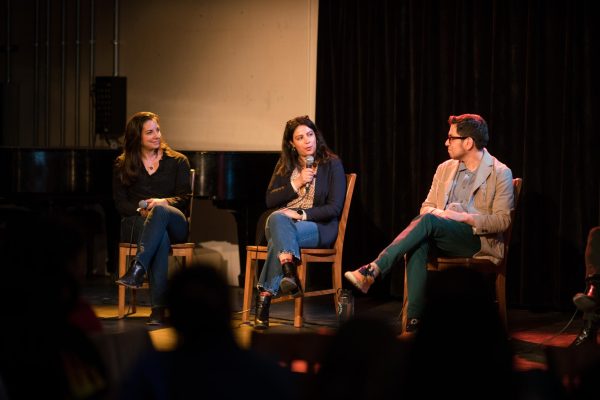Obies Share Thoughts on Self-care for Upcoming Long Weekend
As midterm stress wreaks havoc on professors and students alike, next Monday and Tuesday promise a reprieve. In lieu of a traditional spring break, the College has set aside these two days to focus on wellness instead of work.
Self-care has taken on a spectrum of definitions at Oberlin; at its simplest, self-care means doing something to feel better. But the term is loaded with contradictory interpretations, and it can be a challenge to decide when momentary relief from assignments and extracurriculars will be self-care and when setting yourself up positively for the future is the more self-compassionate choice.
For College second-year Vanessa Baker, self-care can manifest as indulging in leisure activities or taking the time to tackle necessary tasks.
“I feel like self-care has been commodified a bit, to be just, ‘Do a face mask and take a bath and then you’ll feel better,’” Baker said. “Sometimes that’s self-care, obviously, but other times it’s making yourself do the stuff that you don’t want to do.”
What constitutes self-care also varies by individual and circumstance. For students who hold marginalized identities, taking time to indulge one’s self can be a difficult decision in its own right.
“Self-care is radical,” said College third-year Colby Fortin, who has worked in several peer-support roles at Oberlin and seen this struggle firsthand. “Rest is radical, especially for people of marginalized identities, especially for disabled folks, and especially during coronavirus. It’s hard to make that choice, to take radical rest.”
Fortin added that self-care is not only crucial for the individual, but also for the people around them.
“Self-care also means when you care for yourself, you are caring for your community and understanding that tie,” they said.
College fourth-year Sofie Rejto places self-care at the intersection of entertainment and necessary self-maintenance. As a remote student taking classes from Australia, Rejto uses creativity to get through long, class-filled nights.
“Self-care to me is doing a lot of the things that I already do, but without guilt,” Rejto said. “I really love knitting. I knit through all of my Zoom classes to stay awake and to concentrate.”
While the term implies a certain level of individual focus, making space for relationships with other people is another form of self-care. After going a year without visiting his parents in Nanjing, China, College fourth-year Han Du is grateful for how his friends have helped him to take care of himself.
“Friendship has been really important in this time,” Du said. “I would be in a much worse shape if I were not living with my housemates who are really supportive and great people. … I think the longer the quarantine has gone, the more important genuine human interactions are.”
Friendships and other close relationships also teach students new ways to care for themselves. College second-year Solace Porter said that her mother imparted to her a love of self-care salon visits, but her personal definition changed over time.
“Self-care to me is taking time for yourself to do things that you enjoy, whether that is … exercising, [or] maybe I like to go get my hair done, get my nails done,” she said. “When I was younger, I think my mom put it in my head that it was going to get your nails done or getting your hair done, and stuff like that. But for me now, I think it can be even just spending time with someone or going on a drive by myself. There’s a wide scope of things.”
Furthermore, self-care is circumstantial. Since she’s not in the throes of midterms, Baker can invest her time in a more energy-intensive activity. During her mid-year break, Baker has been volunteering with Planned Parenthood for her SOAR micro-internship. Volunteering creates a positive feedback loop of energy for Baker that inspires her to do more work for the community.
“I’m actually volunteering on Monday at this organization called Forgotten Harvest, and they make boxes of food for people in the community,” she said. “I see that as a form of self care; … doing good to others makes you feel good, so it’s good for everybody.”
While the right kind of work can be energy-enhancing and volunteering can be uplifting, many Obies still have trouble setting time for themselves that doesn’t have to be productive. Fortin’s personal framework for self-care involves knowing when they need a break and allowing themself to have space between different parts of their life.
“I think self-care looks like setting thoughtful boundaries between myself, my education, my relationships, my family, work, and educational pursuits,” they said. “It looks like doing my best to … avoid burnout.”
In this vein, Du hopes to take the long weekend to spend quality time with his friends.
“[I’m going to hang out with] maybe my very close friends and housemates … but we’’re going to do a lot of activities in our house just because it’s safer,” Du said.
For Obies needing a hefty dose of escapism, Rejto recommends Married at First Sight, available for free on Pluto.tv.
“It’s an Australian reality TV show… [and] apparently people have started watching it in the States,” Rejto said, “The drama is just magnifique.”
As such a versatile concept, self-care doesn’t require hours scheduled away or big events planned. For Obies still operating under pressure during the long weekend, Du suggests taking actions as small as opening your window.
“That is fresh air,” he said. “Even though you don’t need to go outside, you can look outside where you live. “I’ve heard it’s important. Maybe [that] will make people feel better.”











